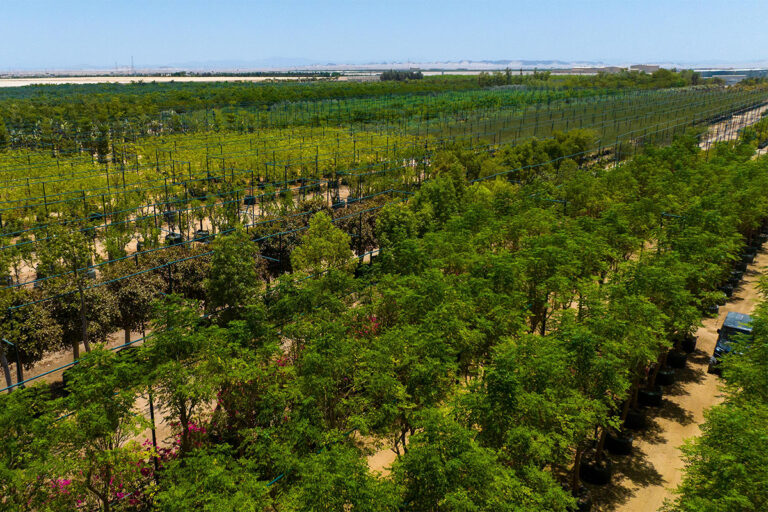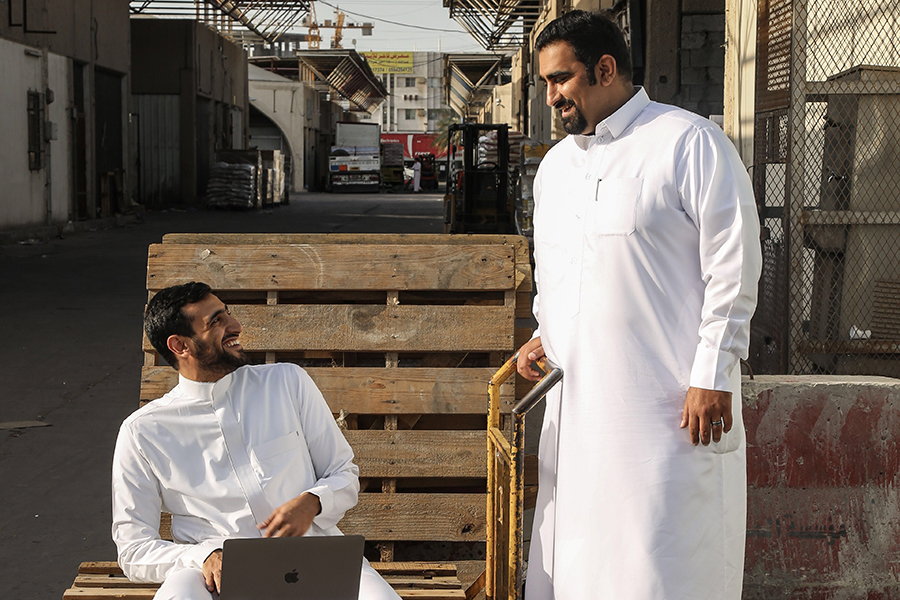
Mohammed Aldossary, co-founder and CEO of digital marketplace Sary, is one of the leading young Saudi entrepreneurs changing the face of the economy and launching a new era of opportunity for small companies and startups.
The Sary platform connects thousands of Saudi merchants to their wholesalers, simplifying their supply chains and helping them grow their businesses. In 2020, when the COVID-19 pandemic required many companies to shift their operations online, more than 30,000 businesses joined the platform. In the last 12 months Sary has processed over $250 million of orders, reported a tenfold increase in revenue, and helped thousands of Saudi stores and home-based caterers and craftspeople take their businesses to the next level. “COVID-19 was an important catalyst for Sary,” says Aldossary. “It proved that our technology can give mom-and-pop stores and microbusinesses access to the same quality of procurement as a multinational.”
Aldossary launched Sary after working for several years at Careem, the dominant ride-sharing company in the Middle East that is now an Uber subsidiary. It was here that he first saw the potential of innovation to transform the relationships between local merchants and their suppliers.
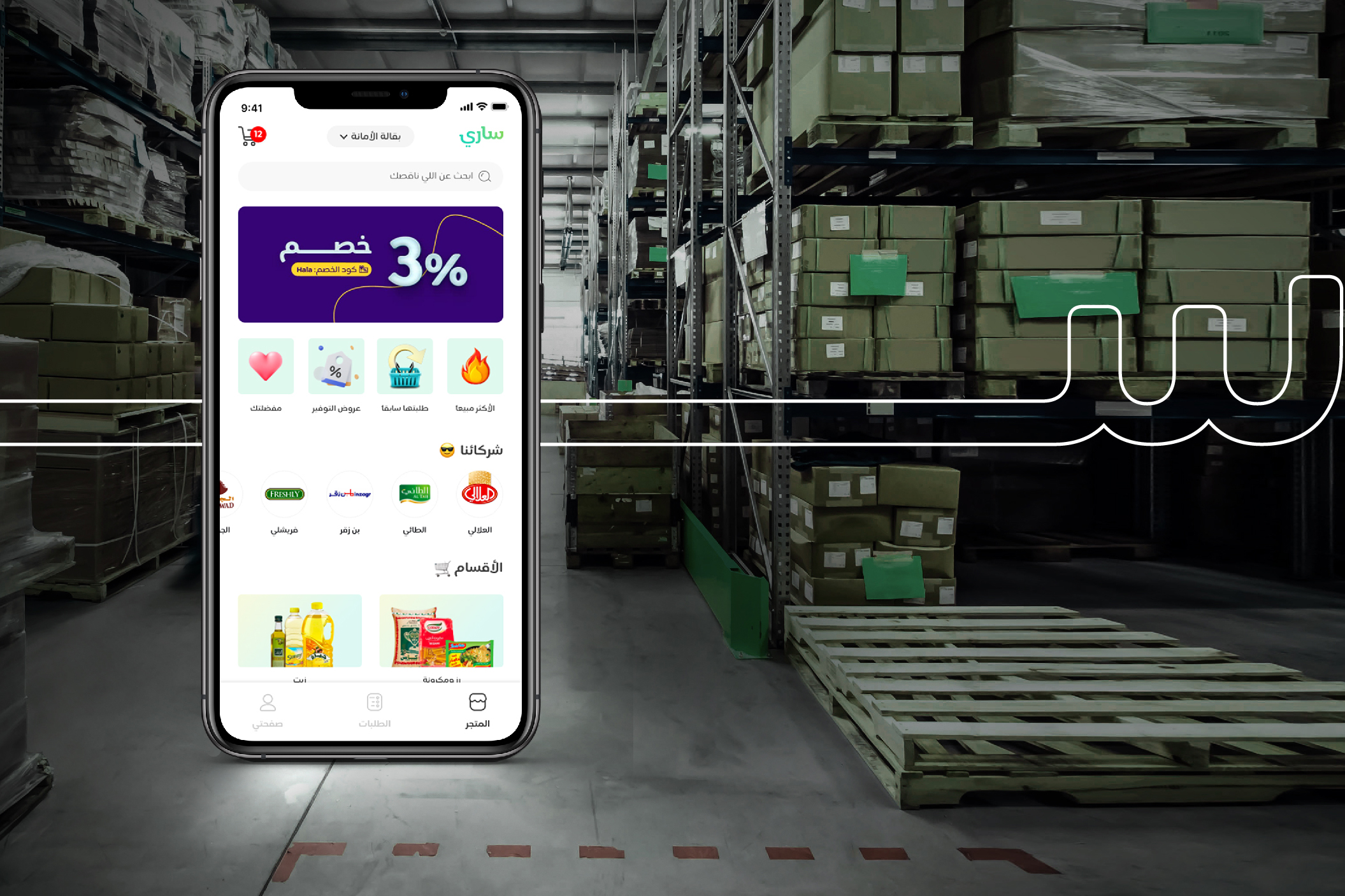
“Sary started life as a marketplace but is morphing into a platform that provides all the essential services that an SME might need.”
Mohammed Aldossary, Co-founder and CEO, Sary
“If you can order food on an app and have it delivered to your door within thirty minutes, then why do independent stores and restaurants have no real-time visibility over their supplies? With Sary, we make this possible. Rather than negotiating with 30 different suppliers, the owner of a cupcake store can just open Sary, order all the ingredients they need, and secure delivery within 24 hours.” Sary enables digital invoicing for its merchant customers and helps them gain access to credit from their suppliers. As growth accelerates, the company plans to add maintenance and financial services to its platform. Sary’s growth story is attracting the interest of investors from across the Middle East and beyond. This year, the startup raised $30.5 million in a Series B round that included investors from Silicon Valley alongside regional sovereign wealth funds.
Aldossary says that the increased availability of risk capital and the high level of Internet access in Saudi Arabia are fueling a thriving culture of entrepreneurship, especially in the technology and logistics sectors. Saudis from all backgrounds are now fulfilling long-held dreams, launching daring new businesses, diversifying the economy, and propelling the private sector to new heights.
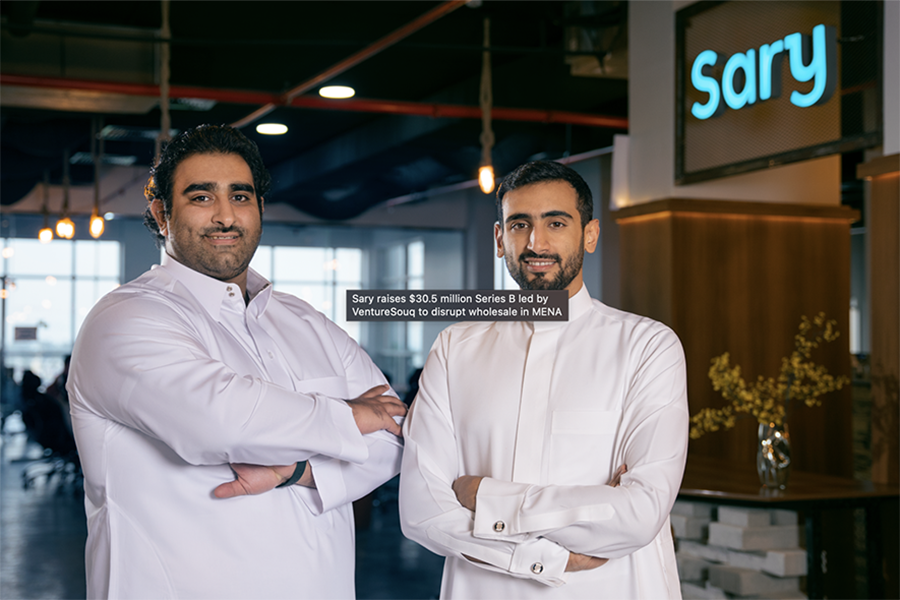
“The target of Vision 2030 is for small and medium-sized enterprises [SMEs] to contribute 35% to GDP by 2030, up from 20% now,” Aldossary explains. “At Sary, our mission is to empower these businesses and give them everything they need to prosper and grow.”
Which companies are the target market for Sary, and how do you help them?
We are using technology and innovation to eliminate inefficiencies in the supply chain and help our customers focus on growing their business. Our clients are often small stores that have more than 30 suppliers. Sary helps them consolidate their procurement. We give them real-time visibility of where their goods are. We solve their procurement problems and save them money.
Our market is microbusinesses, which are managed by one to three people. They represent 88% of SMEs in Saudi Arabia, or around 350,000 companies in total. Our mission is to help them become more efficient and grow faster. These companies have limited resources and capital, but with our technology, we can empower them, give them the infrastructure they need, and let them focus on the customer experience.
Our focus is on food and beverages because that represents almost 50% of household spending in Saudi Arabia. I want moms creating desserts at home to benefit from the same level of supply as the biggest multinational food chains.
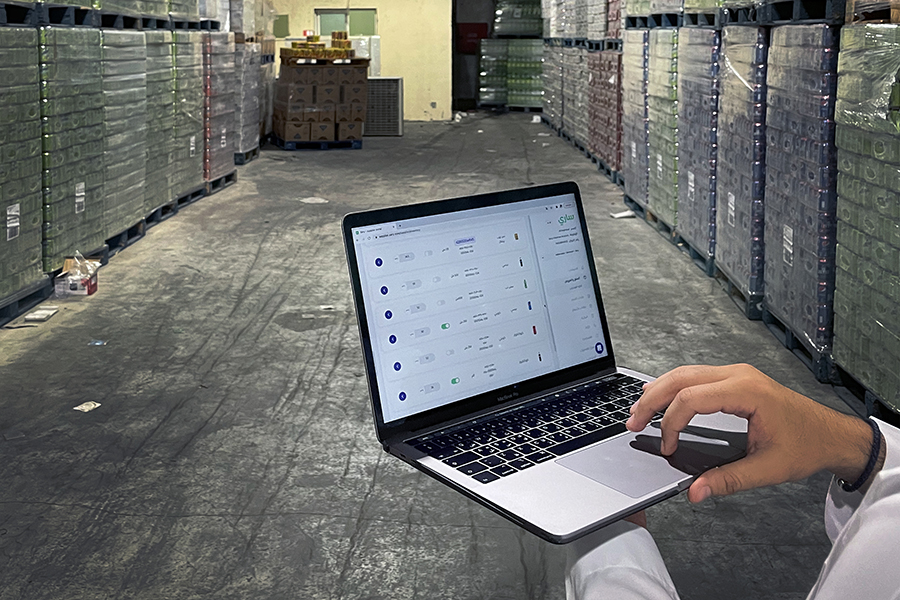
How fast is demand growing for Sary’s services?
As a company, we are less than three years old and employ under 100 people, but in 2020 we moved more than 4 million tons of goods. We are already present in three cities, and by the end of this year, we should expand to five cities and serve a customer base of 50,000 SMEs. We want to continue empowering SMEs in the region, and to offer them financial services and the other components they need to grow. We are obsessed by customer service and we love it when local businesses that had been struggling before call us to say that, thanks to Sary, they have been able to open a new branch in a new city. That is the impact that we are having.
Why do you think Saudi Arabia is becoming such an entrepreneurial country?
In the last few years, much more capital has become available for entrepreneurs. At the same time, the pandemic has made it easier to do business, because it has accelerated the shift to e-governance. You can do everything online now. Just as important is the change of attitudes in Saudi Arabia. People used to be suspicious of technology and resistant to change. Now there are a lot of talented and ambitious people who want to shift careers and explore new possibilities.
There is a rich ecosystem of talent and a new group of investors who are ready to finance disruptive startups. Everywhere we go, we see people daring to experiment and daring to innovate![]()






